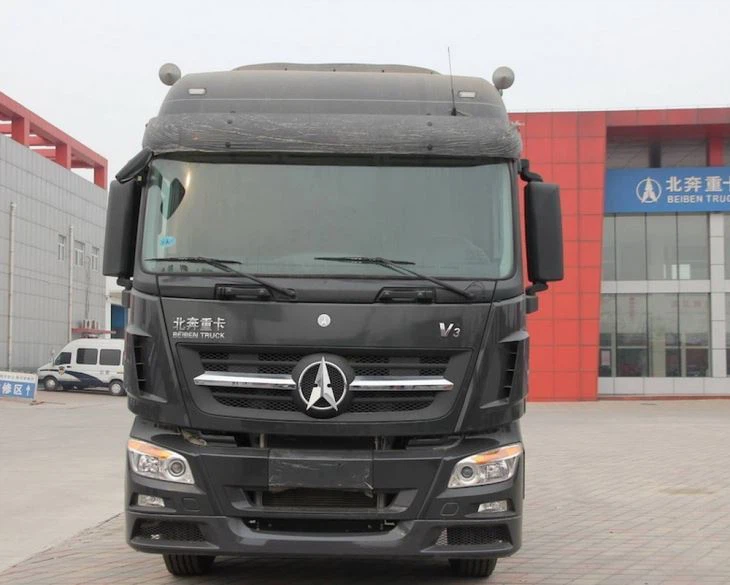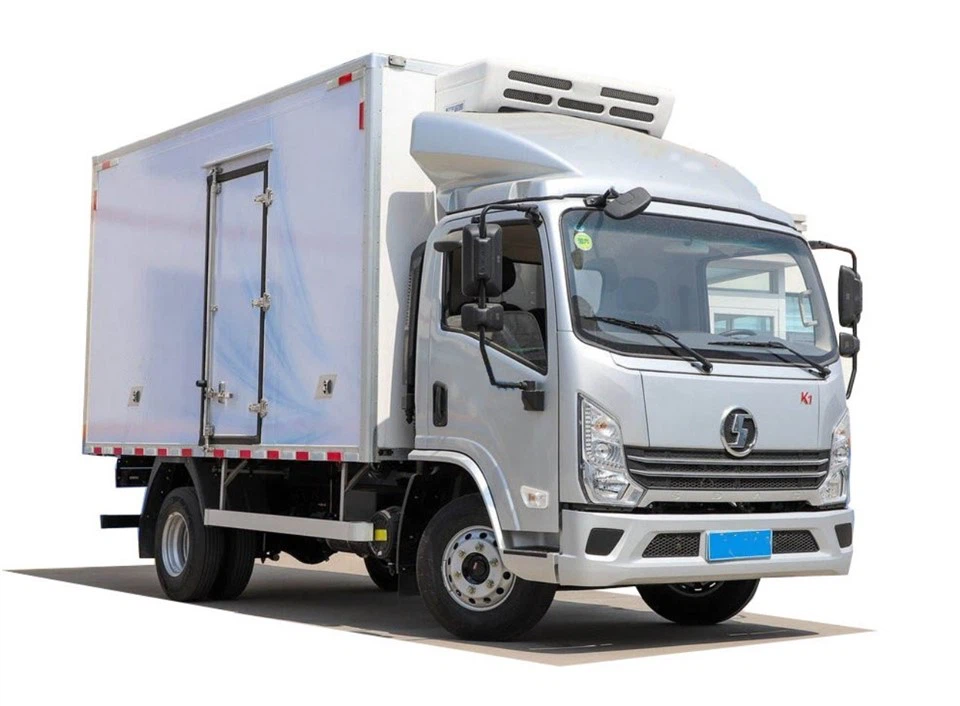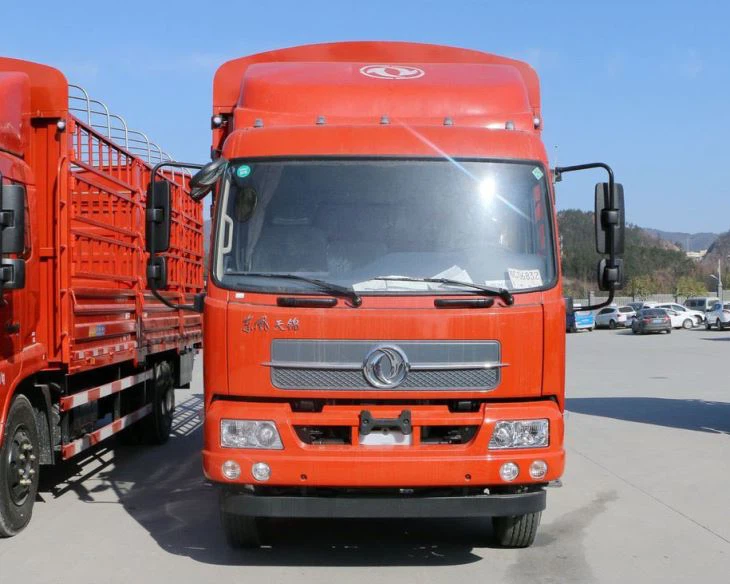Everything You Need to Know About Small Tank Trucks

Introduction
Small tank trucks play a vital role in various industries, from agriculture to transportation. These vehicles are designed to carry liquids or other substances with ease and efficiency. This article will explore the ins and outs of small tank trucks, their applications, design, benefits, and important considerations when choosing one. Additionally, we will share practical tips and answer common questions to help you gain a comprehensive understanding of this essential vehicle type.
What is a Small Tank Truck?
A small tank truck is a commercial vehicle specifically designed for transporting liquids or loose materials. These trucks typically feature a smaller tank capacity compared to their larger counterparts, making them ideal for local deliveries and operations in cities or tighter spaces.
Types of Small Tank Trucks
There are several types of small tank trucks available, each tailored for specific uses. Here are some common types:
- Water Tank Trucks: Employed for watering agricultural fields, construction sites, or for firefighting support.
- Fuel Tank Trucks: Used to transport gasoline, diesel, and other fuels to gas stations or commercial operations.
- Chemical Tank Trucks: Designed to carry liquids such as fertilizers, pesticides, or industrial chemicals.
- Vacuum Tank Trucks: Used for cleaning and transporting waste materials, including sewage and industrial waste.
Key Features of Small Tank Trucks
Small tank trucks come equipped with various features that make them efficient and reliable. Here are some key aspects to consider:
Tank Material
The material of the tank significantly impacts durability and weight. Common materials include:
- Aluminum: Lightweight and resistant to corrosion, making it popular for fuel and water tanks.
- Stainless Steel: Very durable and resistant to rust, making it suitable for transporting corrosive substances.
- Polyethylene: Often used for smaller tanks due to its lightweight nature and chemical resistance.
Capacity
Small tank trucks generally have a capacity between 500 to 3,000 gallons. The capacity can affect the truck’s size, weight, and maneuverability. Consider your specific requirements and operational scope when choosing the appropriate size.
Pumps and Valves
Small tank trucks are typically equipped with pumps to facilitate loading and unloading. The type and power of the pump can vary depending on the intended use of the truck. Additionally, high-quality valves are crucial for controlling the flow and preventing leaks.
Applications of Small Tank Trucks
From construction sites to farms, the applications of small tank trucks are diverse:
Agricultural Use
Farmers utilize small tank trucks for transporting water, fertilizers, and pesticides to the fields. These trucks allow for precise application and efficient delivery over both short and long distances.
Construction Sites
Construction companies often use water tank trucks for dust control, site cleaning, and concrete mixing. Their size allows easy navigation around different construction areas.
Commercial Uses

Businesses that require regular delivery of fuel, chemicals, or food-grade liquids benefit from small tank trucks. This includes grocery stores, gas stations, and laboratories.
Emergency Services
Small tank trucks can also serve as an emergency response vehicle for firefighting, thanks to their ability to transport large amounts of water quickly.
The Benefits of Using a Small Tank Truck
Choosing a small tank truck comes with several advantages:
Cost-Effective
Smaller trucks typically have lower purchase prices and operating costs compared to larger models, making them a more economical choice for many businesses.
Easy Maneuverability
Due to their size, small tank trucks can navigate tight spaces and urban environments more easily, allowing for efficient deliveries in congested areas.
Versatile Applications
These trucks can serve multiple purposes and can be customized for a variety of liquids, making them an adaptable choice for many industries.
Reduced Environmental Impact
Many small tank trucks are designed to meet stringent environmental regulations, thus minimizing the risk of spills and leaks that can harm the environment.
Choosing the Right Small Tank Truck
Selecting the right small tank truck involves careful evaluation of several factors:
Determine Your Requirements
Identify the specific liquids you will transport, the volume needed, and the distance involved. This will help you choose the appropriate tank size and material.
Consider the Truck’s Design
Tank shape and positioning can affect the truck’s stability and ease of use. Ensure the design fits your operational needs.
Evaluate Safety Features
Select trucks equipped with necessary safety features such as emergency shut-off valves, rollover protection, and appropriate labeling for hazardous materials.
Check Regulations
Ensure that the truck complies with local regulations and standards for transporting specific liquids, especially hazardous materials.
Maintenance Tips for Small Tank Trucks
Proper maintenance is crucial for the longevity and safe operation of small tank trucks:
Regular Inspections
Conduct routine checks on the tank, pump, and valves to identify any wear and tear early. Look for leaks or corrosion on the tank body.
Flushing the Tank
Periodically flush the tank to remove any residual materials. This is particularly important for trucks transporting chemicals or food-grade materials.
Engine Maintenance
Keep up with regular engine maintenance, including oil changes and filter replacements, to ensure optimal performance of the truck.
Documentation and Compliance Checks
Maintain records of inspections and repairs to comply with regulations and ensure the truck remains safe and operational.
Cost Factors for Small Tank Trucks
When investing in a small tank truck, consider the following cost factors:
Initial Purchase Price
The base cost of the truck will depend on its size, brand, and features. Understand your budget and what features are necessary for your operations.
Maintenance and Repairs
Factor in ongoing maintenance costs, which can vary depending on the age and condition of the truck.
Insurance Costs
Insurance is a critical aspect of vehicle ownership. Ensure you budget for these costs, which can vary based on the truck’s use and value.
Fuel Efficiency
Consider the fuel efficiency of your small tank truck. More efficient vehicles will save you dollars in the long run.
FAQ Section
What is the typical capacity range for small tank trucks?
Small tank trucks typically have a capacity range of 500 to 3,000 gallons, depending on their intended use and design.
What materials are small tank trucks made of?
Common materials for small tank trucks include aluminum, stainless steel, and polyethylene, each offering different benefits.

Can small tank trucks be customized for specific purposes?

Yes, small tank trucks are often customizable. You can adjust the tank size, material, and equipment based on specific operational needs.
What safety features should I look for in a small tank truck?
Important safety features include emergency shut-off valves, rollover protection, and adequate labeling for hazardous materials.
How often should small tank trucks be maintained?
Regular inspections should be conducted every few months. However, maintenance will vary based on usage; high-usage trucks will require more frequent checks.
Are there any regulations regarding the transportation of hazardous materials?
Yes, there are strict regulations regarding the transport of hazardous materials. Always ensure compliance with local and federal laws to maintain safety and legality.
